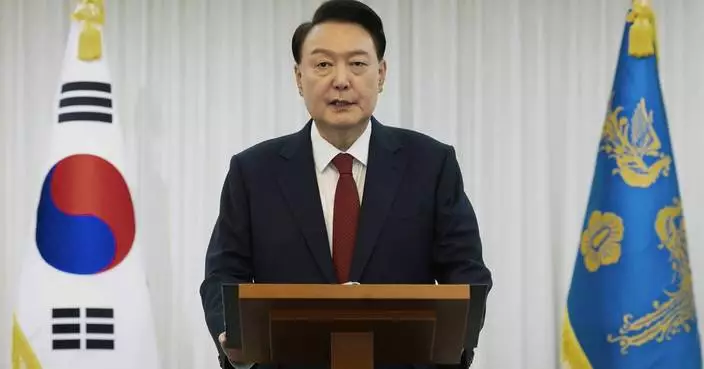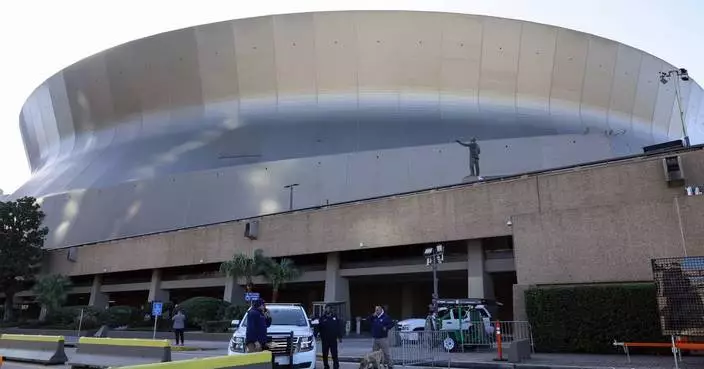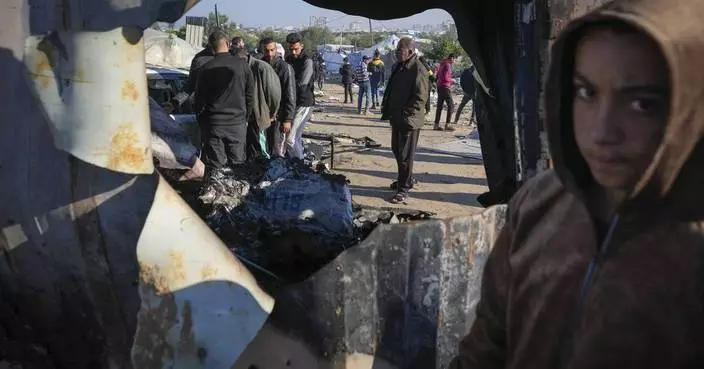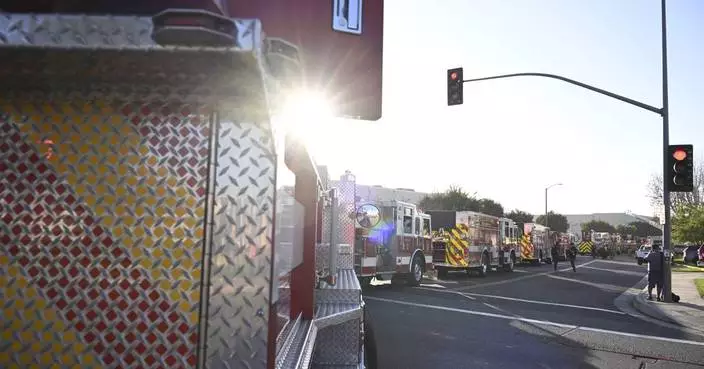New York pop-punk band State Champs’ self-titled album is one fans of the genre have heard before — a band musing about awkward interactions at parties, overthinking their romantic relationships and scorning the mundane. Across 12 tracks, the album is charming, but unchallenging.
Typically, when an artist chooses to name an album after themselves, they’re communicating something — that this is their most definitive work, the release they most identify with. In the case of State Champs, the album released 14 years into their career stays true to the angsty identity they established in their early music, while expressing a reluctance to branch into something more.
In a collective statement, the band described the record as embodying all of State Champs’ discography, and it’s true. The new album’s tracks could belong to their debut EP in 2010 or their last album, 2022’s “Kings of the New Age.” There’s something to be said for consistency, but overwhelmingly, their matured pop-punk coupled with risk aversion leans more into the safety of pop territory than punk.
A good example of this is the first song, “The Constant,” all peppy drums, sultry guitars and punctuating tambourines; it launches into an energy that is carried throughout the record. The instrumentals are edgy, but the lyrics are surface level. “Do you think I deserve this/Keeping me in the dark/While you got what you wanted," frontman Derek DiScanio sings.
He declares a similar thesis five songs in at “Too Late to Say,” over drum-heavy production: “When there’s a good thing coming/I turn around instead/I’m getting good at ignoring it."
Influences from iconic bands in the genre like All Time Low and Blink-182 are heard throughout. Lyrics are generic and universal, avoiding any real controversy. Even profanities are meticulously placed to be affectual and nonthreatening — even more reserved than what you’d find on an Olivia Rodrigo record.
Across the album, State Champs wrestle with self-doubt. It takes on a few forms. On “Just a Dream” and the closer “Golden Years,” the band is stuck on the past, unsure of the future. “'Cause now it takes everything in me/Putting the past up on a shelf/And falling in love with something else,” DiScanio sings on the latter track.
But there are standouts, like the palm-muted power chords of “Clueless,” driving bass of “Light Blue” and the explosive, lovesick brooding and gang vocals of “Save Face Story." They’re not reinventing the wheel here, but in those moments, their customariness works.
Overall, State Champ’s eponymous album colors comfortably within pop-punk’s lines, choosing familiarity over experimentation. It makes for a predictable but enjoyable album, evoking the image of a suburban house party or while practicing tricks at the skatepark.
For more AP reviews of recent music releases, visit: https://apnews.com/hub/music-reviews
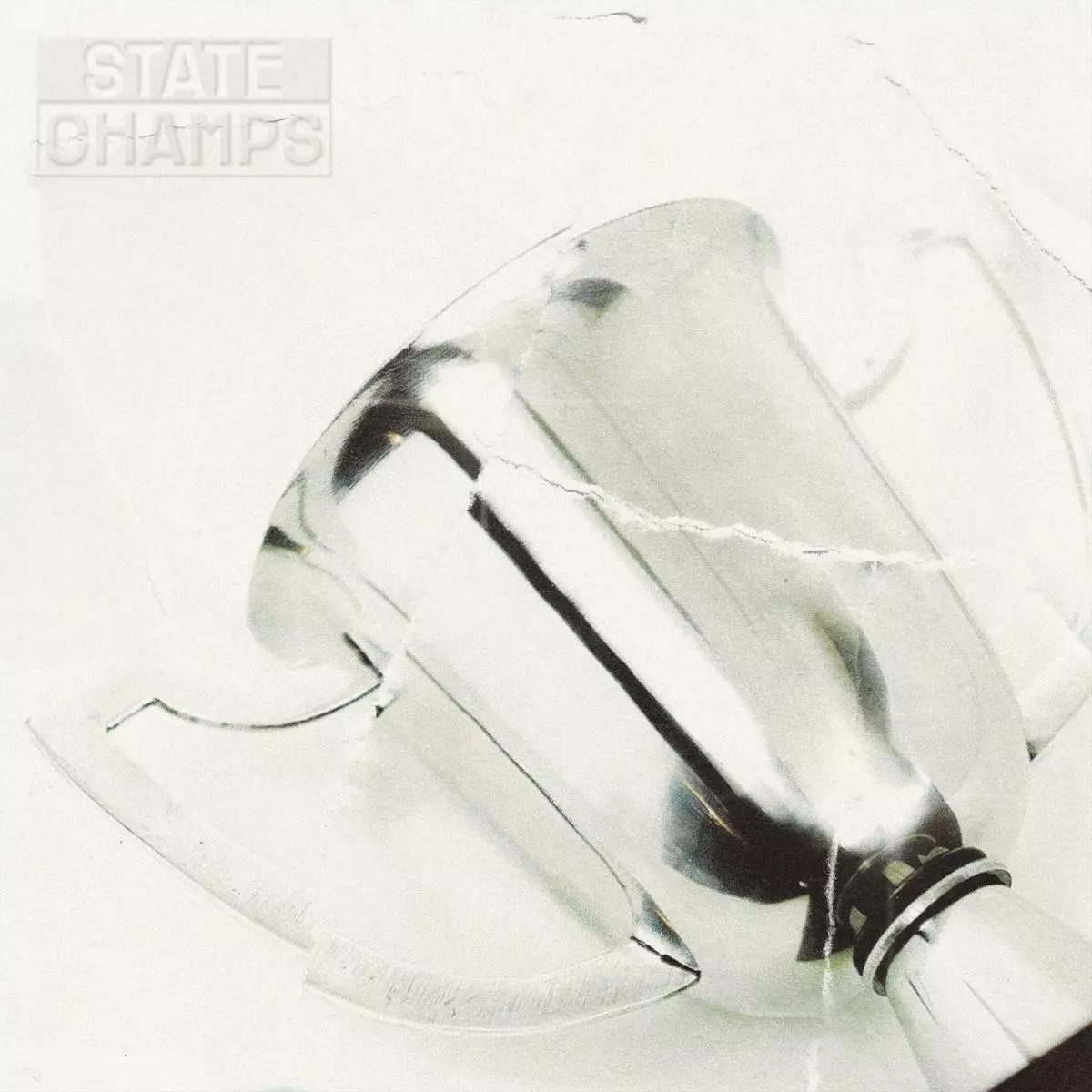
This cove image released by Pure Noise Records shows the self-titled album for State Champs. (Pure Noise Records via AP)
NEW YORK (AP) — Bobby McMann scored twice, including the tiebreaking goal late in the third period, and the Toronto Maple Leafs beat the New York Islanders 2-1 on Thursday night.
Joseph Woll stopped 32 shots as the Maple Leafs topped the Islanders for the second time this week and won for the third time in four games.
Scott Mayfield scored for New York and Ilya Sorokin made 29 saves in the Islanders' third straight loss.
Islanders defenseman Adam Pelech was called for a tripping penalty which set up the power play that McMann and Toronto capitalized on to get the winning goal with 2:59 remaining.
The Islanders poured on the pressure in the final minutes but Woll preserved the Maple Leafs' win.
McMann opened the scoring at 10:43 of the second, and Mayfield tied it with 1:45 remaining in the period.
Islanders: Twenty-year-old Islanders defenseman Isaiah George left the game in the second period when he caught an elbow from Max Domi and did not return.
Maple Leafs: Toronto assistant coach Lane Lambert returned to UBS arena for the first time since being fired by the Islanders on Jan. 20, 2024. Lambert originally came to New York with Barry Trotz in 2018 and then took over behind the bench when Trotz was fired in 2022.
Mitch Marner gave his right-handed stick to left-handed defenseman Oliver Ekman-Larsson after his stick broke, but the Maple Leafs' defenseman was unable to clear the puck out of the defensive zone on his off hand. That turnover led to the Islanders scoring the tying goal late in the second period.
The Islanders allowed the opening goal for the 12th time in 14 games and are 5-8-1 in that span.

Toronto Maple Leafs' Max Domi (11) fights for control of the puck with New York Islanders' Bo Horvat (14) during the second period of an NHL hockey game, Thursday, Jan. 2, 2025, in Elmont, N.Y. (AP Photo/Frank Franklin II)

Toronto Maple Leafs' Bobby McMann (74) celebrates with teammates after scoring a goal during the second period of an NHL hockey game against the New York Islanders, Thursday, Jan. 2, 2025, in Elmont, N.Y. (AP Photo/Frank Franklin II)

Toronto Maple Leafs' Bobby McMann (74) fights for control of the puck with New York Islanders' Pierre Engvall (18) during the second period of an NHL hockey game, Thursday, Jan. 2, 2025, in Elmont, N.Y. (AP Photo/Frank Franklin II)

Toronto Maple Leafs goaltender Joseph Woll (60) celebrates with teammates after an NHL hockey game against the New York Islanders, Thursday, Jan. 2, 2025, in Elmont, N.Y. (AP Photo/Frank Franklin II)

Toronto Maple Leafs' Max Pacioretty (67) and Mitch Marner (16) celebrate with teammates after a goal by Bobby McMann during the third period of an NHL hockey game against the New York Islanders, Thursday, Jan. 2, 2025, in Elmont, N.Y. (AP Photo/Frank Franklin II)

Toronto Maple Leafs goaltender Joseph Woll (60) protects the net during the second period of an NHL hockey game against the New York Islanders, Thursday, Jan. 2, 2025, in Elmont, N.Y. (AP Photo/Frank Franklin II)

Toronto Maple Leafs' Bobby McMann (74) celebrates after scoring a goal during the third period of an NHL hockey game against the New York Islanders, Thursday, Jan. 2, 2025, in Elmont, N.Y. (AP Photo/Frank Franklin II)











